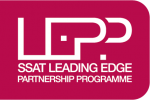English Language and Literature Combined-Edexcel 9EL01
Year 12 modules
Students will explore a variety of non-literary and digital texts contained in the anthology as well as two texts connected to the theme of ”Society and the Individual”; they will be “The Great Gatsby” and “Othello”.
Students will begin with a bridging unit. This will involve the revision or learning of technical terminology as well as an outlining of the level of depth and detail needed in written analysis. Creative writing skills will be discussed and practised.
Component 1: Voices in Speech and Writing
The first teacher will introduce students to the concept of ‘voice’ and the breadth of text types in the Anthology provided by the board. The ideas covered will be: the influence of context; literary, linguistic and graphological conventions; language choices and their use to meet the writer or speaker’s purpose or audience’s expectations; precise selection of evidence; the application of linguistic and literary terminology; how themes are established. Students will learn to analyse the voice created in the anthology texts and compare them to unseen texts, as required by the exam.
Non-examination assessment: Investigating and Creating Texts
Students will also start preparing the coursework unit. This involves creative writing in the genres of both fiction and non-fiction, and a commentary analysing their own creative process. A stimulus text for each writing genre will be studied, to help students understand some of the concepts, tropes and techniques typical of the genre. This will help them to create their own pieces, which will be related to the theme of Journeys. Stimulus texts are currently ‘Notes from a Small Island’ by Bill Bryson and ‘The Road’ by Cormac McCarthy.
Component 2: Varieties in Language and Literature
The second teacher will enable students to apply linguistic and literary methodologies to their interpretation of ‘Othello’ and ‘The Great Gatsby’. Different language levels such as phonetics, phonology, lexis and semantics, grammar and morphology, pragmatics and discourse, need to be integrated into analysis. The structure of a text and its connection to genre, audience expectations and the writer’s intentions are also important aspects of the understanding developed by students, as well as the texts’ social and historical contexts.
By the end of May, students will have completed ‘Othello’, ‘The Great Gatsby’ and the most of the anthology; they will also have started studying ‘Notes from a Small Island’ and have drafted their non-fiction coursework piece. They will be able to analyse language, structure and form in depth and will be prepared for the predicted grade examination at the end of June.
Once the PG exam is completed students will receive feedback and the teachers will use the assessment to predict A-level grades, as well as identify the key areas of development required.
Year 13 modules
Non-examination assessment: Investigating and Creating Texts
For the autumn term, with one teacher, students return to the study of the fiction stimulus text for their coursework, analysing and emulating the tics and techniques of the author as well as exploring the tropes and approaches that make for successful fiction writing. They are expected to engage in significant wider reading around the thematic subject area, and this will further inform the refinement of their personal writing and the crafting process. Commentary writing will also be taught and practised during this term. The full coursework folder, comprising a non-fiction piece, a fiction piece and a commentary, with a cumulative total of 4125 words, will be complete by the end of term.
Component 1: Voices in Speech and Writing
With their other teacher, students will study a 20th century play, currently 'Equus’ by Peter Shaffer, exploring its themes, characterisation and theatrical techniques, as well as the social and historical contexts of its production and reception. The examination question on this text is the second section of the Anthology comparison exam.
From the spring term onwards, the focus will return to revision in preparation for mock examinations in March, as well as regular exam skills practice for all the different components.
How will students be taught?
A variety of teaching methods will be employed to develop their thinking, writing and analytical skills, as well as their confidence in presenting their own opinions. They will encouraged to lead as well as participate in seminar style lessons, undertake individual projects and work in small groups. Under staff guidance they will be encouraged to develop their own independent learning and research.
What can I do with this subject?
The knowledge gained of a range of literary and linguistic approaches and applications complements study of other subjects at A Level while also preparing students for the rigours of English studies at degree level.
This is recognised as a demanding academic subject by both universities and future employers in areas such as journalism, broadcasting, law, advertising, teaching, business communications and public relations as well editing, publishing and research.
The breadth and variety of career options in the subject is indicated by some of the many, many famous names who are English graduates: Renee Zellweger, Stephen King, Danny Boyle, Stephen Fry, Ian Hislop, Natasha Kaplinsky, Emma Thompson and Alistair McGowan.
















